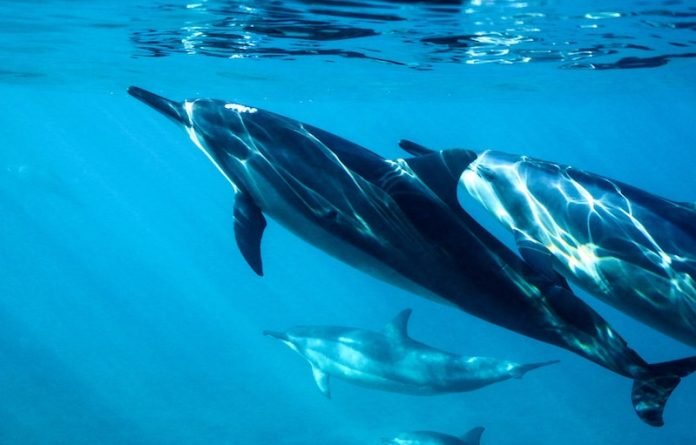
In a study from the University of Glasgow and elsewhere, scientists found the brains of three species of stranded dolphins show classic markers of human Alzheimer’s disease.
They studied the brains of 22 odontocetes which had all been stranded in Scottish coastal waters.
The study included five different species, including Risso’s dolphins, long-finned pilot whales, white-beaked dolphins, harbor porpoises and bottlenose dolphine.
They found that four animals from different dolphin species had some of the brain changes associated with Alzheimer’s disease in humans.
The findings may provide a possible answer to unexplained live-stranding events in some odontocete species.
Study authors confirm the results could support the “sick-leader” theory, whereby an otherwise healthy pod of animals find themselves in dangerously shallow waters after following a group leader who may have become confused or lost.
In the study, the researchers examined stranded animals for the presence of the brain pathology that are part of the hallmarks of Alzheimer’s disease, including the formation of amyloid-beta plaques, the accumulation of phospho-tau and gliosis (a change in cell numbers in response to central nervous system damage).
The results showed that the brains of all of the aged animals studied had amyloid-beta plaques.
Three animals in particular—each from a different odontocete species—had amyloid-beta plaques as well as a number of other dementia-related pathologies in their brains, showing that some odontocete species develop Alzheimer’s-like neuropathology.
However, the study cannot confirm whether any of the animals would have suffered with the same cognitive deficits linked to clinical Alzheimer’s disease in humans.
Researchers say that these are significant findings that show, for the first time, that the brain pathology in stranded odontocetes is similar to the brains of humans affected by clinical Alzheimer’s disease.
All animals in this research were studied after a stranding event. Marine Scotland and Defra fund post-mortem examinations, via the Scottish Marine Animal Stranding Scheme (SMASS), of cetaceans (including odontocetes), pinnipeds and marine turtles that strand and die in Scottish coastal waters.
If you care about Alzheimer’s, please read studies about antioxidants that could help reduce the risk of dementia, and 5 steps to protect against Alzheimer’s and Dementia.
For more information about brain health, please see recent studies that herb rosemary could help fight COVID-19 and Alzheimer’s disease, and results showing this stuff in mouth may help prevent Alzheimer’s.
The study was conducted by Dr. Mark Dagleish et al and published in the European Journal of Neuroscience.
Copyright © 2022 Knowridge Science Report. All rights reserved.



